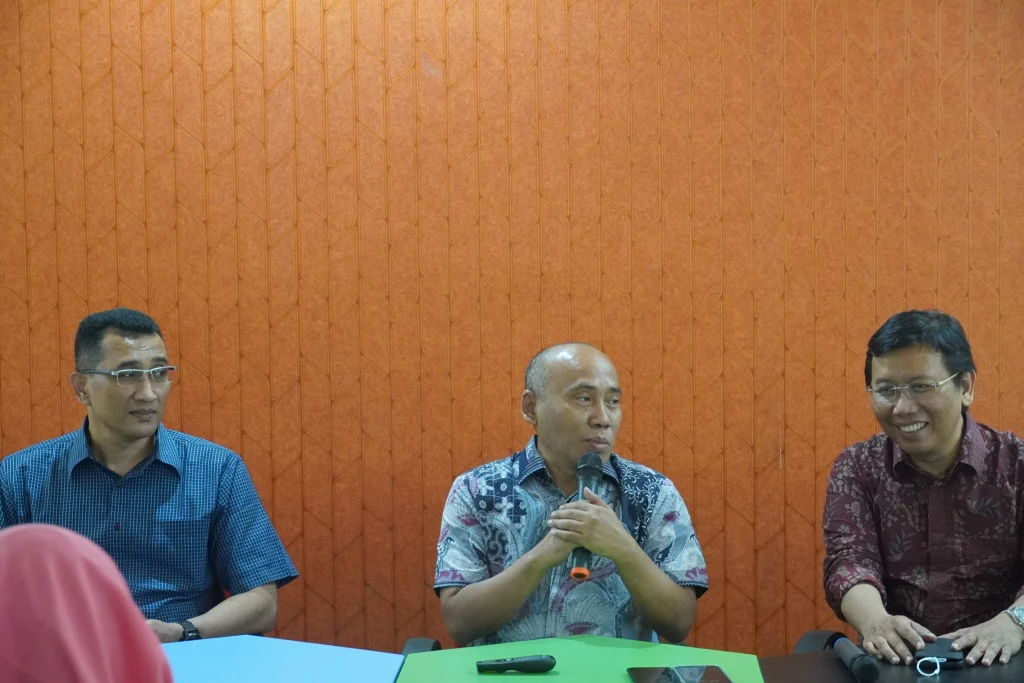UNAIR NEWS – The Business Startups and Incubation Development Board (BPBRIN) organized a workshop on the urgency of halal product certification on Thursday, March 21, 2024, with Executive Chairman of the Halal Institute, SJ Arifin, as the speaker.
The implementation of mandatory halal certification on October 17, 2024, served as the basis for this workshop. Its objective was to educate stakeholders in startup businesses by the mandate of Law No. 2 of 2022. This law mandates that products entering, circulating, and trading within Indonesia must be halal certified.
SJ Arifin explained that halal certification is the acknowledgment of a product’s halal status based on a written halal decree from the Indonesian Council of Ulama (MUI). As a realization of Law No. 2 of 2022, Indonesia is establishing the Halal Product Assurance (HPA).
“The term ‘mandatory’ in Law No. 2 of 2022 signifies the government’s determination to build a halal product assurance system,” said Arifin.
Arifin elaborated that halal certification can provide assurance of halal products for consumers, enhance consumer trust, and fulfill the government’s halal mandates. Consumers in Indonesia typically look for the halal logo on a product before making a purchase.
“With halal certification, the country guarantees that the product is halal,” he stated.
Arifin further noted that it is not only Islamic countries pursuing halal certification, but also minority Muslim countries. Canada, for example, imports inspectors from Indonesia for the halal certification of their products. This is due to the awareness of the significant Muslim consumer market in Indonesia.
“The impact of this mandatory regulation is significant, not only domestically but also internationally,” he continued.
In the future, the Halal Product Assurance Agency will conduct halal certification gradually. The first phase will be carried out in 2024, focusing on food and beverage products, as well as services and slaughtering results. The second phase will take place in 2026, focusing on medicines, cosmetics, chemical products, and even items such as jewelry, household supplies, and medical equipment. Subsequently, the third phase from 2029 to 2034 will focus on over-the-counter drugs, prescription drugs, and medical devices in categories C and B.
This policy is adopted because the government realizes that simultaneous implementation in one phase will not be effectively realized. “The government is aware that this mandatory measure cannot be implemented simultaneously,” he added.
Author: Muhammad Kahlil Gibran
Editor : Khefti Al Mawalia









